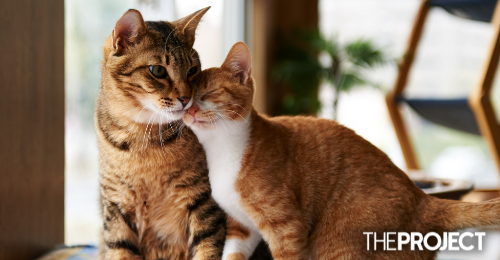The study in Japan studied cats who live in multi-cat dwellings, either in a multi-cat household or in a ‘cat cafe’, where customers can interact with the felines.
Researchers presented an image of a cat to the tested feline and played a recording of its owner’s voice either saying the name of the model cat (the congruent condition), or saying a different name (the incongruent condition”.
The research found that when the wrong name for the displayed feline was said, a tested cat from a domestic household would stare at the screen longer, with researchers believing it was because they were puzzled by the mismatch of the name said to the image shown.
It was noted that cats from the cat cafes did not have the same reaction, possibly because they lived with a larger number of other cats and were not as familiar with them.
"Only household cats anticipated a specific cat face upon hearing the cat's name, suggesting that they matched the stimulus cat's name and the specific individual," the researchers said in the paper.
"Upon hearing a cats' name, the subjects expected the corresponding face."
The team of researchers believe cats develop an understanding of names by watching third-party interactions, explaining this is why cats at cat cafes do not have the same opportunity to learn other cats names.
The recognising of names is not just limited to other cats, but to humans as well.
The study used pictures of humans in the cats’ households and cats from domestic homes had the same reaction in expecting a certain name.
"Our interpretation is that cats living with more people have more opportunities to hear names being used than cats living with fewer people, and that living with a family for a longer time increases this experience," said the researchers.
"In other words, the frequency and number of exposure to the stimuli may make the name-face association more likely."





























